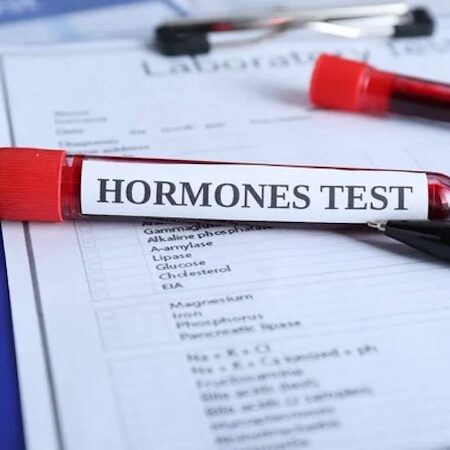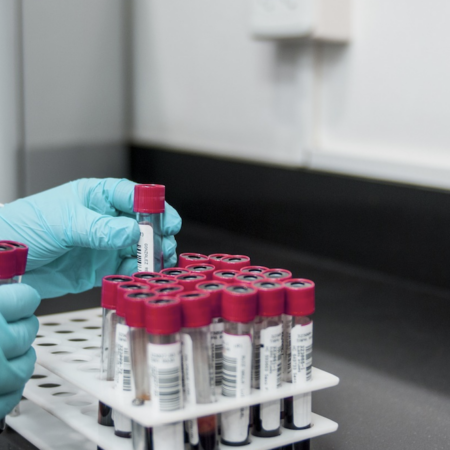Hormone Testing in Cape Girardeau MO
At Dawn of Life Aesthetics & Wellness Med Spa in Cape Girardeau MO, we offer Hormone testing, which provides critical insights into the body’s endocrine system, helping to diagnose hormonal imbalances, guide treatment, and manage health conditions effectively.


What is Hormone Testing?
Hormone testing is a diagnostic tool used to measure hormone levels in the body to assess various aspects of health and diagnose hormonal imbalances. Hormones are chemical messengers produced by glands such as the thyroid, adrenal glands, and pituitary gland. They play crucial roles in regulating processes like metabolism, mood, reproductive functions, and more.
How It Works
- Types of Hormone Tests:
- Blood Tests: Measure hormone levels in the blood. Common tests include:
- Thyroid Function Tests: Measures thyroid hormones (TSH, T3, T4) to evaluate thyroid gland function.
- Sex Hormone Tests: Measures hormones like estrogen, progesterone, and testosterone to assess reproductive health.
- Adrenal Hormone Tests: Measures cortisol and DHEA (dehydroepiandrosterone) to evaluate adrenal function.
- Insulin and Glucose Tests: Measures insulin levels and blood glucose to assess metabolic health and insulin resistance.
- Saliva Tests: Measure hormone levels in saliva, often used for assessing cortisol, sex hormones, and other hormones with a circadian rhythm.
- Urine Tests: Measure hormone levels in urine, useful for tracking hormones over a 24-hour period. Often used for adrenal and sex hormone assessments.
- Blood Tests: Measure hormone levels in the blood. Common tests include:
- Sample Collection:
- Blood Tests: Blood is typically drawn from a vein in the arm.
- Saliva Tests: Collect samples by spitting into a container or using a swab.
- Urine Tests: Collect urine samples over a specified period, often 24 hours.
- Laboratory Analysis:
- The collected samples are analyzed using various techniques, such as immunoassays, mass spectrometry, or high-performance liquid chromatography (HPLC), depending on the type of hormone and test.
- Result Interpretation:
- Results are reviewed by healthcare professionals to determine hormone levels, identify imbalances, and guide diagnosis and treatment.
Benefits of Hormone Testing
- Diagnosis of Hormonal Imbalances: Helps diagnose conditions related to hormonal imbalances, such as thyroid disorders (hypothyroidism, hyperthyroidism), adrenal insufficiency, polycystic ovary syndrome (PCOS), and menopause-related issues.
- Personalized Treatment: Provides valuable information for creating tailored treatment plans, including hormone replacement therapy (HRT), lifestyle changes, or medications to address specific hormonal issues.
- Assessment of Reproductive Health: Helps evaluate fertility issues, menstrual irregularities, and symptoms of menopause by measuring sex hormone levels.
- Monitoring Chronic Conditions: Assists in monitoring ongoing conditions such as diabetes, metabolic syndrome, and thyroid disorders to assess treatment efficacy and adjust management plans as needed.
- Insight into Mood and Energy Levels: Hormone testing can help identify underlying hormonal causes of mood swings, fatigue, and other symptoms, leading to more targeted and effective treatments.
- Evaluation of Stress Response: Measures cortisol levels to assess the body’s response to stress and adrenal function, which can help manage stress-related health issues.
- Early Detection of Disorders: Identifies hormonal imbalances before they develop into more severe health problems, allowing for early intervention and better management.
Considerations
- Timing and Accuracy: Hormone levels can fluctuate throughout the day or menstrual cycle, so the timing of the test may impact results. It’s important to follow any preparation guidelines provided by healthcare professionals.
- Cost and Insurance: Hormone testing can be costly, and coverage by insurance may vary. It’s essential to check costs and insurance coverage before proceeding with testing.
- Interpretation of Results: Hormone levels can be influenced by various factors, including age, health status, medications, and lifestyle. Results should be interpreted by a healthcare provider who can consider the overall clinical context.
- Potential for False Results: Abnormal results may not always indicate a specific condition and may require further testing or evaluation to confirm a diagnosis.
- Follow-Up: Hormone testing is often just one part of a comprehensive diagnostic process. Additional tests or evaluations may be needed based on initial results.
Hormone testing provides critical insights into the body’s endocrine system, helping to diagnose hormonal imbalances, guide treatment, and manage health conditions effectively. Working with a healthcare provider ensures accurate interpretation and appropriate management based on test results.
Book your consultation today
Other Services we offer
Aesthetics Services
Facials
Treatment Based Facials
Microneedling
Laser Hair Removal
Waxing
Glo2Facial
Lashes & Brows
Weight Loss Services
GLP-1
Medical Weight Loss
Semaglutide
Tirzepatide
Body Contouring
Functional Medicine Services
Blood Testing
Gut Testing
Food Sensitivity Testing
Hormone Testing
Lymphatic Therapy
Pelvic Floor Therapy
Red Light Therapy
